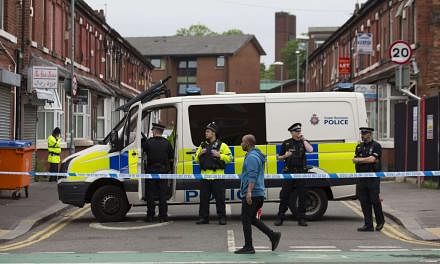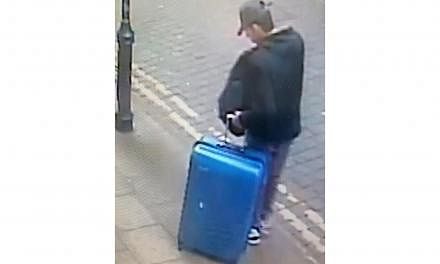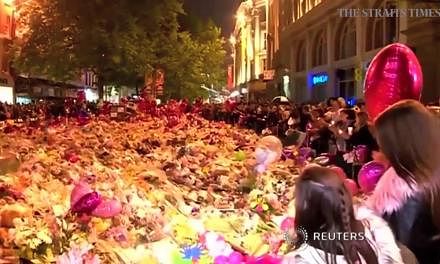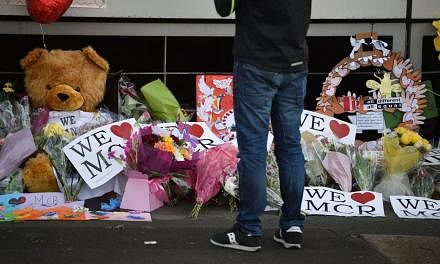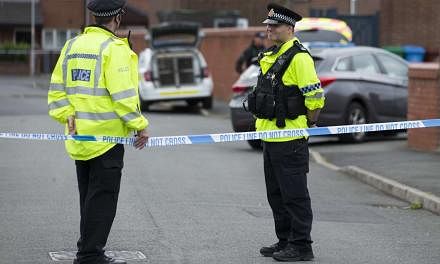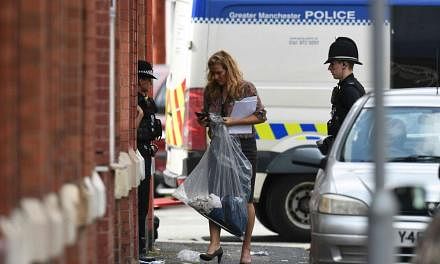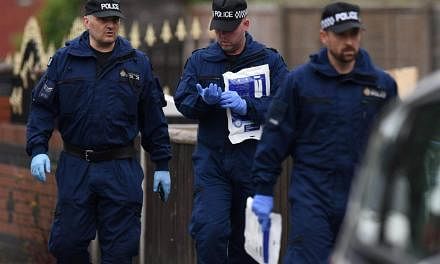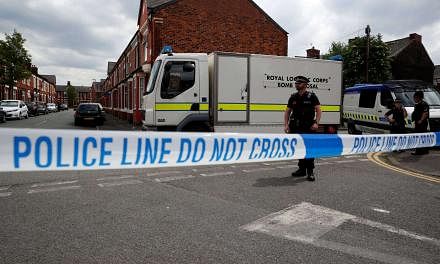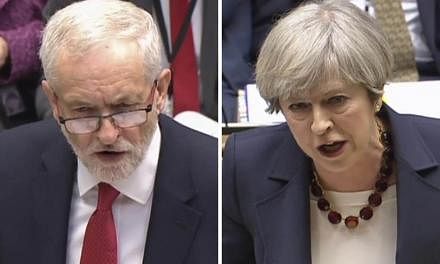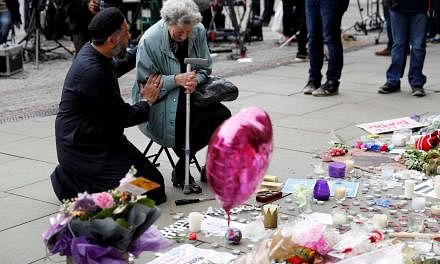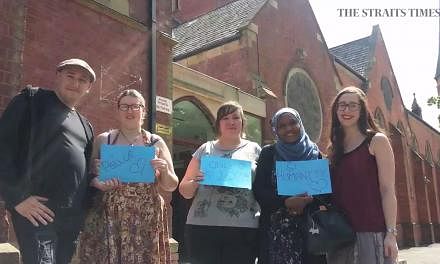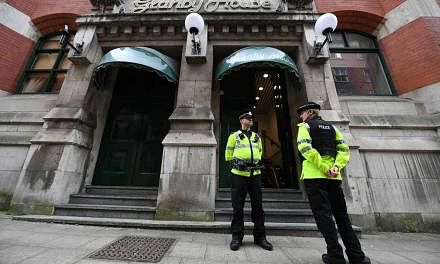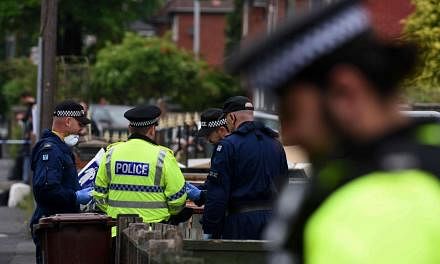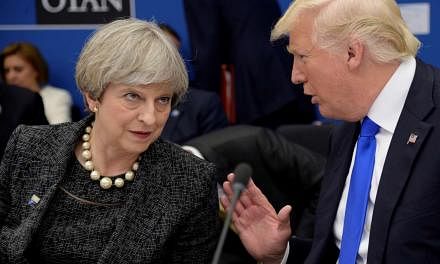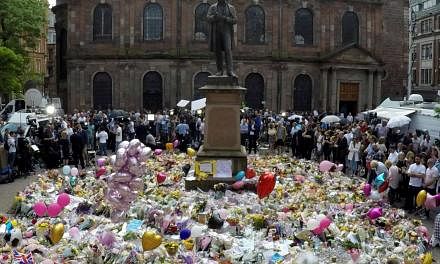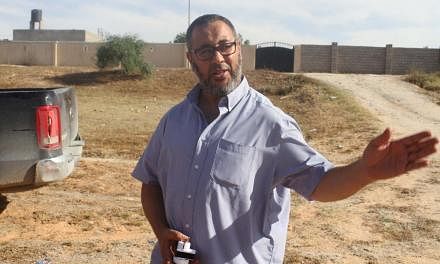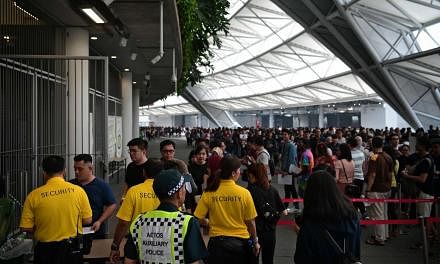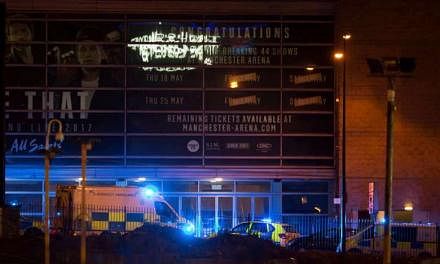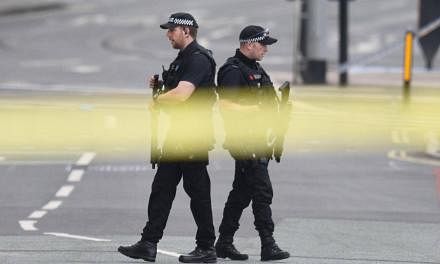MANCHESTER (NYTIMES)- British authorities intensified their search Thursday (May 25) for possible accomplices of the Manchester bomber, as questions emerged about whether more could have been done to prevent the country's deadliest terrorist attack since 2005.
As early as 2011, Salman Abedi, the 22-year-old Briton who has been identified as the bomber, had raised such serious concerns among acquaintances that they called an anti-terrorism hotline to report that he held extremist views.
Sources cited by British media suggest that authorities were informed of the danger posed by Abedi on at least five occasions in the five years prior to the attack on Monday night.
Two friends of Abedi had become so worried they separately telephoned the police counter-terrorism hotline five years ago and again last year, reported the BBC.
"They had been worried that 'he was supporting terrorism' and had expressed the view that 'being a suicide bomber was ok'," a source told the BBC.
The government has said that MI5, the domestic intelligence agency, was aware of Abedi - but only as a peripheral figure, and not someone whose behaviour would have warranted immediate action.
Abedi set off a bomb Monday night as fans left a concert by pop singer Ariana Grande at Manchester Arena, killing 22 people and injuring 64, many of them critically.
As police conducted a series of house raids Thursday in the Manchester area, the chief investigator said they were making headway in the investigation into the plot: Eight suspects were in custody, and officers had amassed important evidence.
"I want to reassure people that the arrests that we have made are significant, and initial searches of premises have revealed items that we believe are very important to the investigation," Manchester's top police official, Chief Constable Ian Hopkins, said at a news conference.
"These searches will take several days to complete, as you would expect. Therefore, there will be some disruption. However, it is very important that we continue with these searches."
Officials in Turkey and Germany said Thursday that Abedi had passed through airports in Istanbul and the German city of Duesseldorf this month on his way back to Britain from Libya.
It did not appear that he had stayed very long or even left the airports in Turkey and Germany, but German authorities were looking into a 2015 visit by Abedi to Frankfurt.
France's interior minister said Wednesday that Abedi had "most likely" travelled to Syria, a stronghold of the Islamic State in Iraq and Syria (ISIS). But Turkish authorities said they had no evidence that Abedi had passed through their country to travel to Syria.
Since the attack, Abedi's older brother, Ismail, has been arrested in Britain, while his younger brother, Hashem, and father have been detained in Libya.
A friend of the Abedi family, Salem Ammar, said in an interview that Abedi's father, Ramadan, had been so worried about his son's frame of mind in the months before the Manchester bombing that he pressured him to come to Libya, and briefly confiscated his passport.
"We were all surprised that he managed to take his passport," Ammar said by telephone from Tripoli, the Libyan capital.
Ammar said that Salman Abedi was distraught after a friend, Abdul Wahab Hafidah, was killed in May 2016 in what authorities took to be an act of gang violence. Hafidah was close with Salman Abedi's brother Hashem.
"I was told his radicalisation started in England shortly after the murder of Hafidah," Ammar said. "Some of the kids there were very upset about it, and that is how it started."
Ammar said he was shocked because Abedi's father, an employee of the interior minister in Tripoli, "is moderate and everyone knows that."
He added, "I still can't believe that his son grew up to be this person."
Ramadan Abedi, the father, fled Libya during the rule of Muammar Gaddafi in 1993 - the year before Salman was born, in Britain - but returned after Gaddafi was overthrown in 2011.
In Manchester, Abdullah Muhsin Norris, the imam at a mosque where members of the Abedi family worshipped, said that Salman Abedi would sit around and read the Quran, avoiding other congregants.
He was so quiet and withdrawn that he would have escaped notice, Norris said, but for the fact that Abedi twice committed minor infractions: lingering in the mosque after dawn prayers and wearing shoes while on his way to the mosque's lavatory.
On one occasion, the young man responded angrily when chastised, telling the imam, "Don't shout at me," according to Norris.
He was "acting like a child, and should know better," the imam recalled.
Authorities are also looking into Abedi's relationships with several known militants, including Raphael Hostey, an ISIS recruiter who was killed in a drone strike in Syria last year. Hostey's younger brother insisted Thursday that his brother did not know Abedi, and then sped off on a moped.
Hamed El-Said, a professor of international political economy at Manchester Metropolitan University and an acquaintance of the Abedi family, said he believed the young man had fallen under the sway of peers.
"This is obviously another example of social radicalization with a small group of friends over the past two or three years - the question is where he met these people," he said.
"He is gullible, he is naive, he is disconnected, he's one of those individuals who, when you tell him something, might believe it. He would be the perfect mule for ISIS," he added.
As authorities worked to piece together Abedi's past, Britain paused to grieve.
Queen Elizabeth II visited teenagers at the Royal Manchester Children's Hospital who had been injured in the blast, and she described the attack as "very wicked." At 11 am, much of the nation, from the Scottish Highlands to the city of London, observed a moment of silence to honour the victims.
Mancunians, as Manchester's residents are known, filled St. Ann's Square in the city center for a memorial service. They laid flowers, stuffed toys and cards of condolence on a flowing makeshift altar.
After the clock had tolled and the minute of silence had ended, someone in the back of the crowd began to sing "Don't Look Back in Anger" by the band Oasis, which was formed in Manchester.
The group singalong was followed by rounds of applause and shouts of "Manchester, we love Manchester!" People continued to stand together around the flowers for another 20 minutes or so after the vigil had ended.
As the country mourned, politics intervened: The campaigning in advance of the parliamentary election scheduled for June 8 resumed after a brief hiatus following the attack.
Britain's prime minister, Theresa May, went to Brussels for a Nato summit meeting, bearing a complaint for President Donald Trump that US intelligence officials had leaked details about the investigation into the attack.
Trump, in turn, called for an inquiry into those leaks, as his secretary of state, Rex Tillerson, prepared to visit London on Friday for what the British Foreign Office called "an expression of UK-US solidarity."

